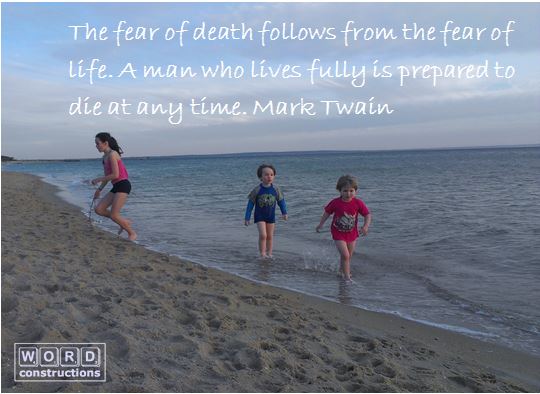I hope you find my writing and business tips and observations useful. My business and blog are dedicated to helping businesses communicate clearly and reach their potential.
Read, subscribe to my newsletter, enjoy!Tash
It shouldn’t need saying, but it must make sense!
Ahh the irony of people giving advice without the skills!
Helping my daughter, I came across an article giving tips on how to write an ‘extraordinary’ speech for school, but much of it does not make sense. I’m really not sure how a student is meant to improve their speech writing via this article.
Examples like this show the value in having someone else reading your work to ensure it makes sense and meets basic grammar rules. The more skilled the person checking it, the better feedback you will obviously get, but even a less skilled person could point out any confusions.
So lets look at parts of that article and see how it could have been less confusing…
understudies?
Article text: …appreciated by your teachers, individual understudies…
My comment: do student usually have understudies listening to a speech? I assume they mean ‘fellow students’ or simply ‘classmates’.
meaning of relief
Article text: …write the same data in each of the paragraphs that are the relief of this subheading.
My comment: Apart from being boring to read if they actually use the same data in every paragraph, I think the article writer needs to learn that relief means to ease or alleviate stress, pain, discomfort and so on. It is unlikely that a subheading feels anything that needs relieving – although I felt relief to stop reading this article!
farewell?
Article text: If your subheadings and speech are moving farewell then they can make the Audience bored, otherwise, your speech will be very good.
My comment: I don’t know what this sentence is meant to say! “If your content is moving forward” is what I first thought it should be, but that doesn’t work with making the audience bored. Maybe farewell should be replaced with slowly?
A much smaller issue is the capital A for audience as it is totally unnecessary and visually stood out to me as wrong.
becoming insensitive
Article text: The first lines … are to speak at certain points so that … everyone becomes insensitive and attracts all the speech. Your first lines are the first impression on your audience.
Comment: This implies that the aim of a school speech is to make people insensitive which is a pretty strange aim – again, a use of vocabulary that is not understood causes big problems in writing. If you aren’t sure of a word, use one you do know – big words are not impressive if used poorly.
As for “attracts all the speech”, I think this means “engages the audience quickly so they listen to all the speech”.
avoid disturbance!
Article text: Between the teachers day speech looking at the Audience is not to be disturbed and you have to control your emotions and to point with your hands so that Audiences are attracted and keep their voice down and down.
Comment so it makes sense: oh my goodness, where do I start with this paragraph?
- using ‘between’ requires two end points (between 5 and 6, between the start and finish, between the speaker and audience) – clearly this sentence does not have that
- ‘looking is not to be disturbed’ would be simpler and more relatable as ‘maintain eye contact’ or ‘look at your audience’. Disturbed also implies external distraction and that is pretty hard to prevent whilst writing a speech!
- ‘control your emotions’ makes sense but I disagree with it – no emotion in a speech makes it bland and less likely to be listened to
- ‘point with your hands’ is out of context and would not help a student learn – what do they point out? how much pointing should they do? does lots of hand pointing really work with controlled emotions? what has pointing hands got to do with writing a speech (the purpose of the article)?
- ‘audiences are attracted’ – again, vocabulary has let the writer down again. Attentive would be a much better word here
- ‘keep their voices down and down’ – personally, I’d prefer my audience to be silent and attentive rather than just talking in low voices
what can you do?
Well, the above hopefully gave you a giggle at some poorly worded tips! And hopefully reminded you of the importance to checking that your work makes sense and reads as you intend.
The key lessons from this article are
- get someone else to review your work before publishing it
- use words you know instead of trying to impress with fancier words
- keep on topic
- remember your audience – use language they understand and don’t make it hard for them to read your work
A funny gesture?
“I use to get jewelry and a print or something they made . It was a nice jester.”
This is a comment I spotted on social media recently in response to a request for some gift ideas. It took me a moment to realise that ‘jester’ was meant to be ‘gesture’, but then it all made sense.
I must admit this is not a pair of words I had thought of as spelling options before, but I now know they can be confused so here are the meanings…
jester [noun]: a person who entertains, especially in medieval times, and often does so through silly behaviours. Also known as a fool, a jester often wears a funny hat with bells hanging from it.
The King laughed as he watched the jester before dinner.
gesture [noun]: a movements of limbs, head or body to express an emotion or thought.
A nod of the head is a gesture of approval.
The key thing I can see that may help you know which word to use is the relationship between jest (to joke or laugh) and jester.
Monday meanings: a dearth of life
For today’s Monday Meanings, I thought I’d follow on from Friday’s post and my personal recent history by defining death and dearth.
Apart from an obvious similarity in spelling with one letter difference, death and dearth do have a certain similarity in meaning too. neither is a cheerful word and both are about a lack or loss. To me, both give the impression of barrenness, isolation and gloom.
Do you find these words similar or just words that happen to be spelt in a similar way?
Death (noun): the end of life, a cessation of being alive.
Liz was completely alone at the lighthouse after Jack’s death.
Dearth (noun): a scarcity or lack of something
There was a dearth of vegetation and colour in all directions.
Are simple messages simplistic?
While being closely related with the same root word, today’s pair of words are quite different – and understanding them can be quite enlightening.
simple [adjective]: basic; missing elaboration, ostentation, complication and subdivisions
Basic arithmetic is simple to write and calculate; quadratic equations are not so simple!
Following main roads is simpler than maneuvering through side streets.
In grammatical terms, simple means having only one clause without any subordinate clauses or modifiers.
simplistic [adjective]: over simplified, missing information or depth
Saying income is the indicator of career success is simplistic.
28% young drivers killed
In 2007, 28% of Victorian drivers aged 18 – 25 were killed.
What a terrible statistic.
It’s also pretty surprising – at 30 June 2006, 902,796 Victorians were aged 18 – 24. 28% of that is 252,782.
The Victorian road toll in 2007 was 333.
So I looked at a Victorian Government website and found this sentence:
While 18 to 25 year olds represent around 14% of licenced drivers, they accounted for approximately 28% of all drivers killed on Victoria’s roads.
28% of the state road toll was 93. Awful to lose that many young people, but significantly better than losing 252,782 of them.
Checking meaning is important
That first sentence is perfectly acceptable in terms of grammar and spelling, and it makes sense when you read it.
But the authors and editors of that text book (yes, I found that sentence in my daughter’s current VCE text book on health) didn’t check that the correct meaning was being communicated.
There is a huge difference in meaning between 28% of young drivers were killed and 28% of killed drivers were young.
Somewhat detracts from the credibility of that text book, doesn’t it?
Do you think I should read the entire book and check every fact they state, or assume it was a one-off?
We’re going where?
Doing some marketing research for a client, I came across the following sentence:
With over 37 year’s experience, where sure to make your Christmas party a huge success!
I admit I was stunned to see this error and thus a new Monday Meaning post was inspired.
where: [noun] location or place; [adverb] in what place/position/respect; ]pronoun] which place or point?
I wonder where Simon will be on Christmas Day this year?
we’re [contraction]: we are – we’re is simply an abbreviation of ‘we are’ where the apostrophe replaces the space and letter a.
We’re going to my Father’s house for Christmas lunch this year.
I’m also adding a word that sounds different but has similar spelling and does sometimes get used in place of where and we’re.
were [verb]: ‘to be’ in the past (ie the past tense) for a plural (we, they) or second person singular (you) noun
We were at my Uncle’s last Christmas Day.
I assure you of the meaning
Today’s Monday Meanings is an interesting set of words.
All three words have a similar sound and very similar meanings – they all relate to making certain and secure. However, they are generally used in different contexts.
Assure: speak positively to convince, make certain, make safe, ensure
The police will assure the family that all is being done.
The CEO will assure this job is yours once she returns from lunch.
Ensure: make certain, make safe, secure
Preparing a first aid kit will ensure a safer trip.
Insure: to guarantee or provide indemnity against harm or loss, usually in the form of money
I pay a premium so the company will insure my business against theft and fire.
So which word to use when?
insure is used where financial matters are involved – relate insure and insurance basically.
assure is mostly used on connection with people or other living things (a for assure and a for alive can help remember this one!) – ‘I assure you’ – and can be related to reassure
ensure is more about events and things – think of ensure as a guarantee that something will happen
Have a go yourself…
Here are some examples for you to try the three words in…
Mary wants to ……. her business equipment.
Jane will …….. the blog posts are uploaded on time.
Ashton hastened to …….. staff that their jobs were secure.
The leader carried an extra blanket to …… the cubs were warm.
Comedy writers ……… readers of a laugh.
Not all companies will …….. a sole trader business.
* Image courtesy of 123rfAgreeably in accord
Constantly confused by letters and similar sounding words? Then read on, learn new definitions and relax!
consonance [noun]: agreement or harmony of the parts of a whole; the repetition of consonants, usually for the key syllables of words or in key words of the writing – often used in poetry
Consonance of words, tone and meaning makes good writing better.
Click-clack, click-clack, the train runs along the track. {note the repeated ck sound)
consonants [noun ]: letters other than vowels ( so not a, e, i, o or u) – more technically, these are the letters which require at least partial closing your vocal tract to say them.
There are 21 consonants in the English language, although Y can act as a vowel and W acts as a vowel in Welsh.
consonant [adjective]: in harmony or agreement
Consonant with the company’s brand, the salesman promised quickly delivery
Sometimes you have use some time
Sometime [adverb]: a not defined time, unspecified time
I’ll finish the great Australian novel sometime.
Sometimes [adverb]: occasionally, from time to time
Sometimes business owners think about going back to having a job.
Some time [phrase]: a period of time
For some time I have been planning to write another eBook.
This trio is based on the same two words merged into one, or not, and all relate to time so the differences are subtle enough it isn’t surprising some people misuse them.
Left as two words to be the phrase, ‘some time’ is the most precise and considered of the three – and it has more precision required to separate the two words so maybe that will help remember when to use the phrase rather than an adverb.








Recent Comments